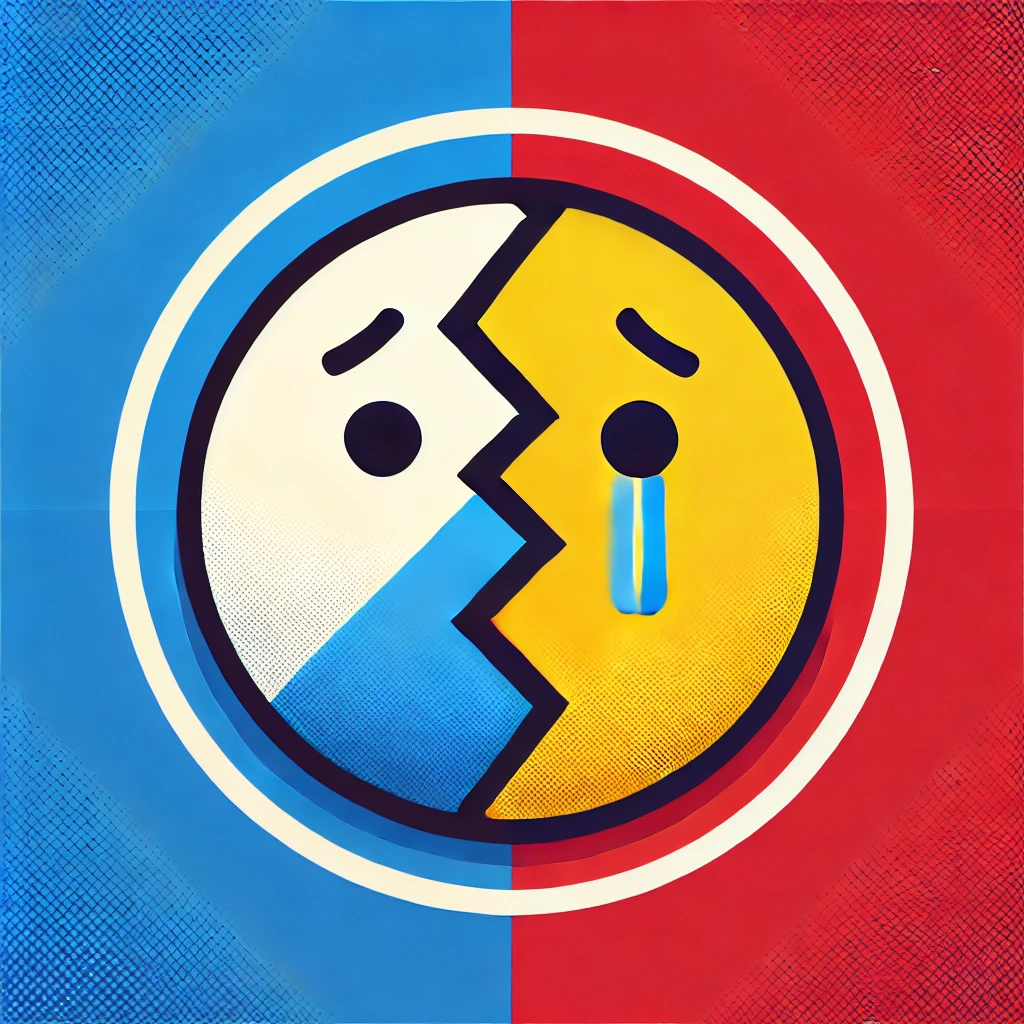Ah, hugot jokes. The bittersweet comedic relief that makes you laugh and cry at the same time. If you’ve ever scrolled through social media and stumbled upon a post that made you chuckle, only to realize it’s hitting a little too close to home, congratulations! You’ve just experienced a hugot joke. But what exactly are these emotional rollercoasters disguised as punchlines? Let’s dive into the world of hugot and explore why these witty quips have taken the internet by storm.
The etymology of hugot
First things first, let’s break down the word itself. “Hugot” comes from the Tagalog word “hugutin,” which means “to draw out” or “to pull out.” In the context of these jokes, it’s all about pulling out those deep, often hidden emotions and turning them into something hilariously relatable. It’s like emotional excavation, but with a punchline at the end.
Hugot jokes are the love child of humor and heartbreak, born from the Filipino knack for finding laughter in even the most painful situations. They’re the verbal equivalent of eating a whole pint of ice cream while watching a rom-com after a bad breakup – cathartic, a little bit pathetic, but oh-so-satisfying.
The Anatomy of a Perfect Hugot Joke
Now that we’ve established what hugot jokes are, let’s dissect these clever quips to understand what makes them tick. A truly great hugot joke is like a well-crafted cocktail – it needs just the right mix of ingredients to hit the spot.
The essential elements
- Relatability: The joke should touch on a common experience or emotion that many people can identify with. The more universal the feeling, the better the hugot.
- Wordplay: A good hugot often relies on clever wordplay or double meanings. The Tagalog language is particularly suited for this, with many words having multiple interpretations.
- Unexpected twist: The best hugot jokes catch you off guard. They start innocently enough but end with a sucker punch to the feels.
- Subtlety: Unlike your ex’s passive-aggressive Facebook statuses, a great hugot joke doesn’t need to scream “I’M HURT!” to get the point across. The best ones are those that make you go “Oof” under your breath.
- Humor: Despite the underlying pain, a hugot joke should still make you laugh. It’s a delicate balance between comedy and tragedy, like a clown crying on the inside.
To illustrate these elements, let’s look at a classic hugot joke:
“I put the ‘ex’ in ‘exciting’ because my life was never thrilling until you left it.”
This gem checks all the boxes: it’s relatable (who hasn’t felt their life turn upside down after a breakup?), uses wordplay (ex in exciting), has an unexpected twist (life becoming exciting after the breakup), maintains subtlety (it doesn’t directly state the pain), and is undeniably humorous.
The Rise of Hugot Culture
Hugot jokes didn’t just appear out of thin air like your ex’s sudden interest in fitness after your breakup. They’ve been brewing in Filipino culture for years, but social media has given them wings to soar into the mainstream consciousness.
From niche to viral
The hugot phenomenon really took off in the early 2010s, coinciding with the rise of social media platforms like Facebook and Twitter. Suddenly, everyone had a platform to share their witty observations and thinly veiled emotional baggage. It was like a support group meeting, but with better punchlines and no mandatory sharing circles.
As more people caught on to the trend, hugot jokes began appearing everywhere – from casual conversations to advertising campaigns. Brands jumped on the bandwagon faster than you can say “It’s complicated,” using hugot-style taglines to connect with their audience on a more emotional level.
Here’s a quick look at the rise of hugot in popular culture:
| Year | Hugot Milestone |
|---|---|
| 2010 | Hugot jokes start gaining traction on social media |
| 2013 | The term “hugot” becomes widely recognized in Filipino pop culture |
| 2015 | Hugot-themed movies and TV shows begin to appear |
| 2017 | Major brands incorporate hugot into their marketing campaigns |
By 2018, hugot had become such an integral part of Filipino internet culture that it was nearly impossible to scroll through your feed without encountering at least one heartache-inducing quip. It’s like the emotional equivalent of those impossible-to-avoid “Tag a friend who…” memes, but with more existential dread.
Hugot Jokes: More Than Just Laughs
While hugot jokes are undeniably funny, they serve a deeper purpose in society. These witty one-liners are more than just a way to get likes on social media – they’re a form of emotional catharsis and a uniquely Filipino way of dealing with life’s ups and downs.
The therapeutic power of hugot
Let’s face it: life can be tough. Relationships end, dreams get shattered, and sometimes it feels like the universe is playing a cosmic joke on you. Enter hugot jokes – the emotional equivalent of turning lemons into lemonade, if the lemonade was spiked with a shot of vodka and a twist of irony.
By finding humor in painful situations, hugot jokes allow people to process their emotions in a more manageable way. It’s like emotional alchemy – turning the lead of heartbreak into the gold of laughter. Plus, sharing these jokes creates a sense of community. When you post a hugot and see the likes and comments roll in, it’s a reminder that you’re not alone in your struggles. It’s like a virtual group hug, but with less awkward physical contact and more witty banter.
Breaking down emotional barriers
In a culture where openly discussing feelings isn’t always the norm, hugot jokes provide a socially acceptable way to express emotions. They’re like the Trojan horse of feelings – sneaking past our emotional defenses disguised as harmless jokes, only to unleash a flood of repressed sentiments once they’re inside.
This emotional openness can lead to more meaningful conversations and connections. After all, it’s much easier to open up about your own experiences when someone else has already broken the ice with a well-timed hugot. It’s like emotional dominoes – once one person starts sharing, others feel more comfortable following suit.
The Art of Crafting the Perfect Hugot
Now that we’ve explored the what, why, and how of hugot jokes, let’s talk about creating your own. Crafting the perfect hugot is an art form, like writing poetry or perfecting your duck face for selfies. It takes practice, creativity, and just the right amount of emotional baggage.
Tips for aspiring hugot artists
- Draw from personal experience: The best hugot jokes come from a place of authenticity. Think about your own life experiences and the emotions they’ve stirred up. Just maybe don’t use your ex’s name in the joke – we’re going for relatable, not restraining order.
- Play with words: Filipino languages are a goldmine for wordplay. Look for words with multiple meanings or similar sounds that you can twist into a clever punchline. It’s like verbal gymnastics, but with less risk of pulling a muscle.
- Keep it concise: A good hugot joke should be short and punchy. Think of it as the Twitter of emotional expression – get your point across in as few characters as possible. Save the long-winded explanations for your therapy sessions.
- Balance humor and heart: Remember, a hugot joke should make people laugh and feel something. If it’s all pain and no punchline, you’re just writing emo song lyrics. (Not that there’s anything wrong with that – we’ve all had our My Chemical Romance phase.)
- Test it out: Before unleashing your hugot masterpiece on the world, try it out on a few friends. If they laugh, you’re on the right track. If they look concerned and start recommending therapists, maybe dial it back a notch.
The Global Appeal of Hugot
While hugot jokes originated in the Philippines, their appeal has spread far beyond the archipelago’s shores. The combination of humor and heartache resonates with people around the world, proving that emotional baggage is the ultimate universal language.
Hugot goes international
As Filipino culture has spread globally through diaspora communities and the internet, hugot jokes have found new audiences. They’ve been translated into various languages, adapted to fit different cultural contexts, and shared across borders faster than you can say “It’s not you, it’s me” in 17 different languages.
This global spread has led to some interesting cultural exchanges. For example, the concept of hugot has found kinship with other cultures’ forms of emotional expression through humor, like the self-deprecating wit of British comedy or the sardonic observations of Jewish humor. It’s like a United Nations of emotional oversharing, but with better punchlines.
The Future of Hugot: Evolving with the Times
As we move forward, hugot jokes continue to evolve, reflecting changing social norms, technological advancements, and new sources of emotional turmoil. (Hello, pandemic-induced existential crises!) The core of hugot – finding humor in pain – remains constant, but the specific jokes and themes shift with the times.
Emerging trends in hugot
- Digital age hugot: Jokes about being left on “seen,” the perils of online dating, and the emotional rollercoaster of social media likes are becoming increasingly common.
- Social issue hugot: More hugot jokes are tackling broader social and political issues, using humor to address serious topics like inequality, climate change, and social justice.
- Self-care hugot: As mental health awareness grows, hugot jokes are starting to incorporate themes of self-love, therapy, and personal growth. It’s like emotional evolution, one punchline at a time.
- Meta hugot: In true internet fashion, hugot jokes are becoming self-referential, with jokes about making hugot jokes. It’s hugot inception – a joke within a joke within your shattered emotional state.
As long as there are hearts to break and laughs to be had, hugot jokes will continue to thrive. They’re the emotional safety valves of our time, allowing us to release pressure through laughter and shared experiences. So the next time life gives you lemons, don’t just make lemonade – craft a hugot joke about it and share it with the world. After all, misery loves company, especially when that company comes with a side of witty wordplay.
Disclaimer: This blog post is intended for entertainment purposes only. The author takes no responsibility for any sudden urges to dramatically stare out of windows while listening to breakup songs after reading these hugot jokes. If you find yourself excessively relating to these jokes, please consult a friend, therapist, or your favorite ice cream flavor. Results may vary. Side effects may include uncontrollable laughter, unexpected emotional breakthroughs, and a sudden desire to write poetry.
Note: We strive for accuracy in all our content. If you notice any inaccuracies or have additional information to contribute, please let us know so we can update the article promptly. Your feedback helps us maintain the quality and reliability of our content.




